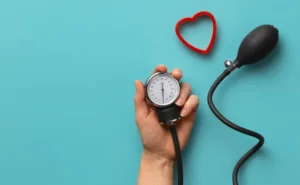 Naturally reversing high blood pressure symptoms involves adopting a holistic approach that encompasses lifestyle modifications.
Naturally reversing high blood pressure symptoms involves adopting a holistic approach that encompasses lifestyle modifications.
A balanced diet, regular physical activity, stress management, maintaining a healthy weight, limiting alcohol and caffeine, and incorporating hydration and herbal remedies collectively contribute to effective blood pressure management.
Consulting with a healthcare professional is essential for personalized guidance and monitoring progress on the journey to better cardiovascular health.
Understanding High Blood Pressure
High blood pressure, or hypertension, is a common health condition that can lead to severe complications if left unmanaged. It is characterized by increased force against the walls of the arteries, putting a strain on the cardiovascular system. Adopting a holistic approach to managing high blood pressure is crucial for long-term well-being.
Balanced Diet for Heart Health
A key element in naturally reversing high blood pressure symptoms is adopting a heart-healthy diet. Prioritize foods rich in potassium, such as bananas and leafy greens, as they help balance sodium levels and promote proper fluid balance. Incorporate lean proteins, whole grains, and omega-3 fatty acids, while reducing sodium and processed food intake.
Regular Physical Activity
Physical activity plays a vital role in maintaining cardiovascular health. Engaging in regular exercise helps strengthen the heart, improve blood circulation, and contribute to overall well-being. Aim for at least 150 minutes of moderate-intensity exercise per week, incorporating activities like brisk walking, swimming, or cycling.
Effective Stress Management
Chronic stress is a contributing factor to high blood pressure. Implement stress management techniques such as deep breathing exercises, meditation, or yoga to promote relaxation and reduce stress levels. Adequate sleep is also crucial, as insufficient sleep can elevate blood pressure.
Maintaining a Healthy Weight
Maintaining a healthy weight is essential for managing high blood pressure. Excess weight contributes to an increased workload on the heart and raises blood pressure. Adopting a balanced diet and incorporating regular physical activity are effective strategies for achieving and maintaining a healthy weight.
Limiting Alcohol and Caffeine Intake
Excessive alcohol and caffeine consumption can contribute to elevated blood pressure. While moderate consumption may be acceptable for some individuals, it’s essential to be mindful of individual tolerance levels. Consider reducing alcohol and caffeine intake to support blood pressure management.
Hydration and Herbal Remedies
Staying adequately hydrated is crucial for cardiovascular health. Water helps regulate blood volume and maintain optimal blood pressure levels. Additionally, herbal remedies such as hibiscus tea have shown the potential to lower blood pressure. Including hydrating beverages and herbal remedies in your routine can contribute to natural blood pressure control.
Picture Credit: Freepik
